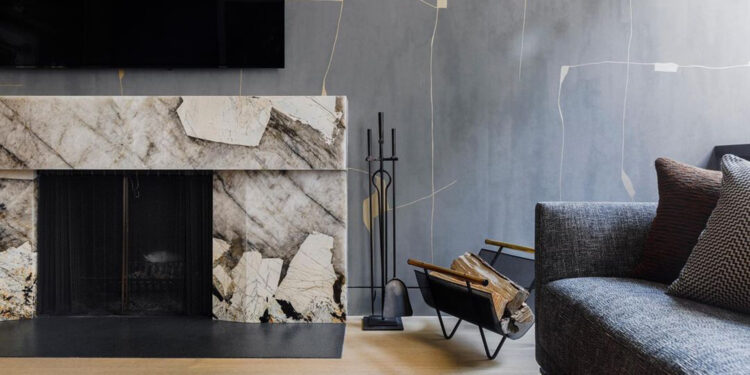How to choose the right countertop for your home
Until you delve into the decision-making process of choosing countertops, you might not have known what you were even looking for, or what materials were involved. From mudrooms to bathrooms, kitchens, and bars…when you start looking around you quickly realize you have more countertop to cover than you thought. And if you’re starting from scratch, why not make the most informed choice possible?
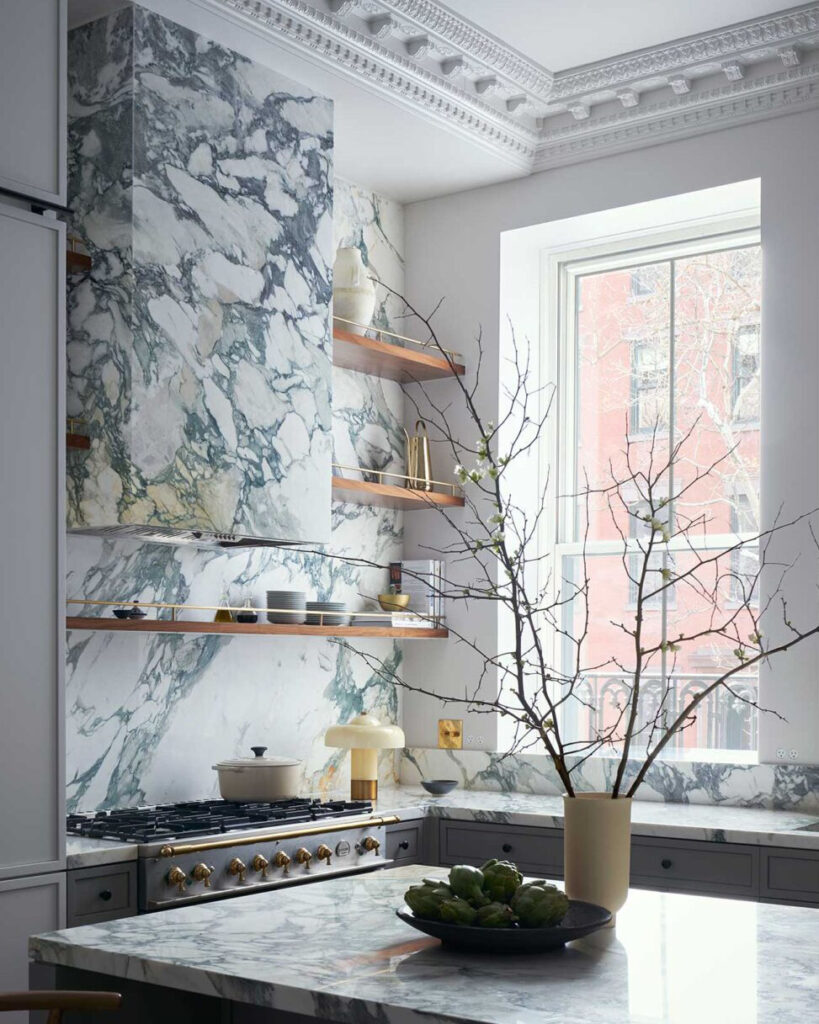
You’ll be faced with options ranging from IKEA butcher block to DIY poured concrete, tile, and a host of synthetic materials referred to as laminates and “solid surface” to choose from. But most high-quality countertops, regardless of size, are made of what is commonly called stone, either natural or enhanced. When you’re ready to invest in a long-lasting hard surface, what are your options?
We checked in with the experts at ABC Stone to better understand some of the most commonly used materials. “Most clients come with the idea that these natural materials are impervious to any staining or scratching, which is not the case, and it’s our responsibility to open their minds to the possibilities of being ok with material aging,” explained ABC Stone VP of Purchasing, Agnes Szymacha. So sit back with a nice hot drink that you’re someday going to set carefully on your new countertops, and dig in.
Quartz Countertops
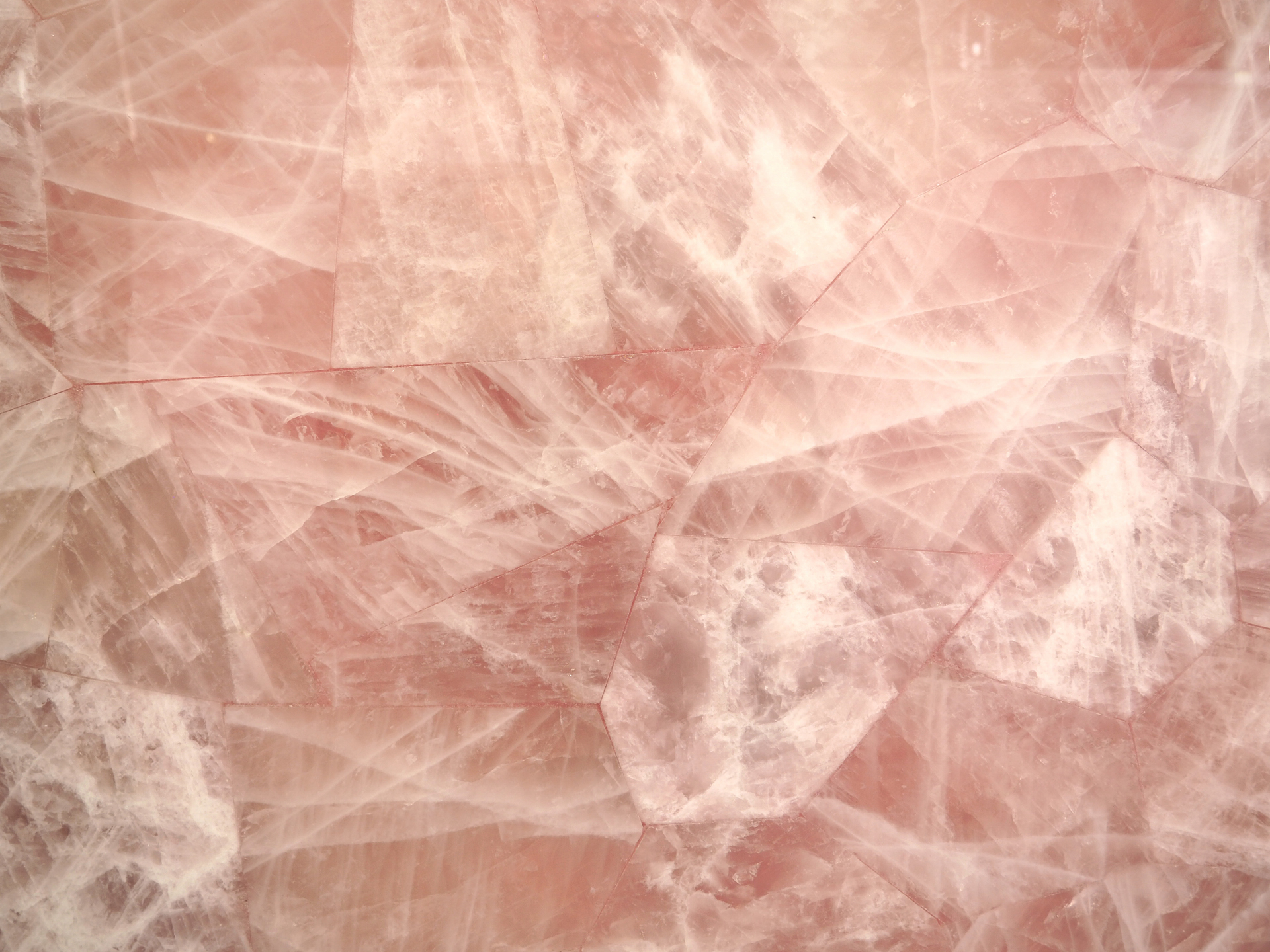
Stylish, gorgeous, and easy to maintain—it’s no wonder that the second most abundant mineral in the Earth’s crust is also one of the most popular countertop materials in the world. Quartz countertops, also known as “engineered stone,” are made by combining natural quartz and other naturally occurring minerals with about seven percent chemical resins and pigments. The manufacturing process allows “unparalleled creative options…an excellent example of human ingenuity and nature combined,” according to Forbes Homes.
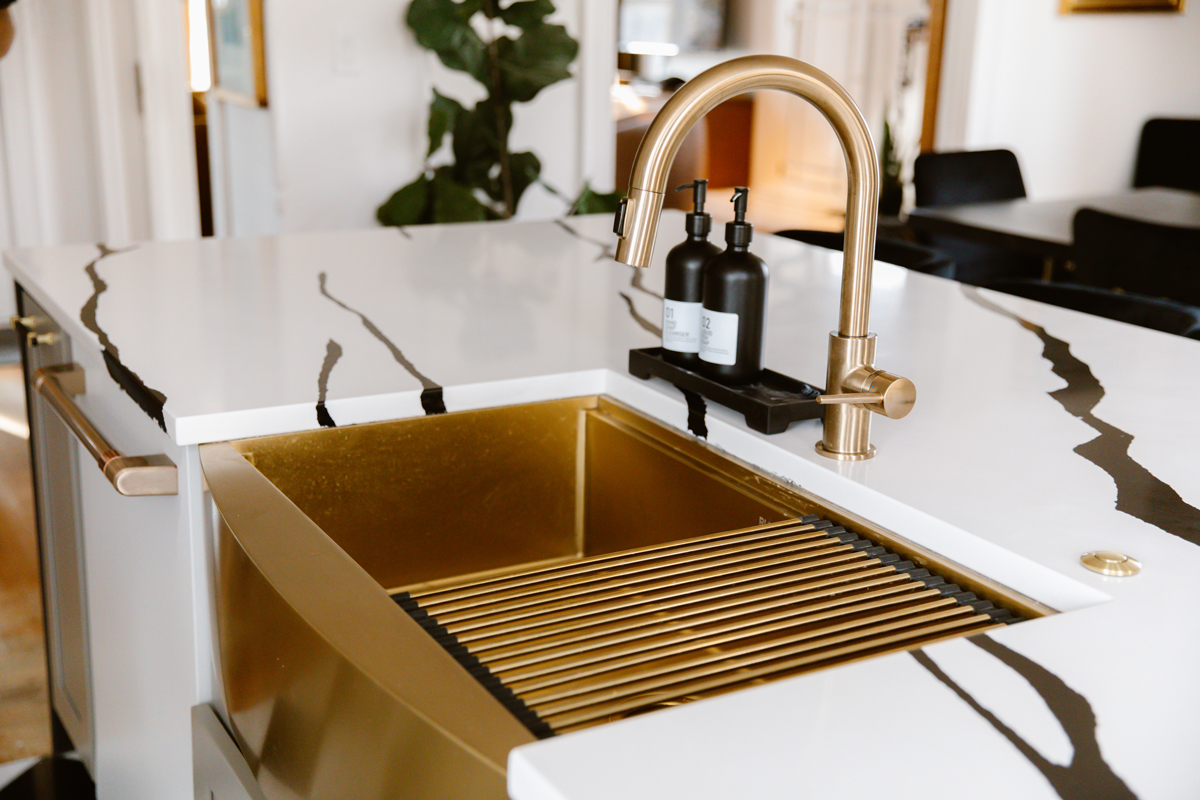
They are also extremely durable, nonabsorbent, and resistant to bacteria—a huge upside for bathrooms and kitchens. They never need to be sealed or polished. The downsides? They are vulnerable to heat, and placing hot items directly on a quartz countertop can cause permanent damage. They are also one of the more expensive options available, and one of the most popular, so selection and wait time could be an issue.
Quartzite Countertops
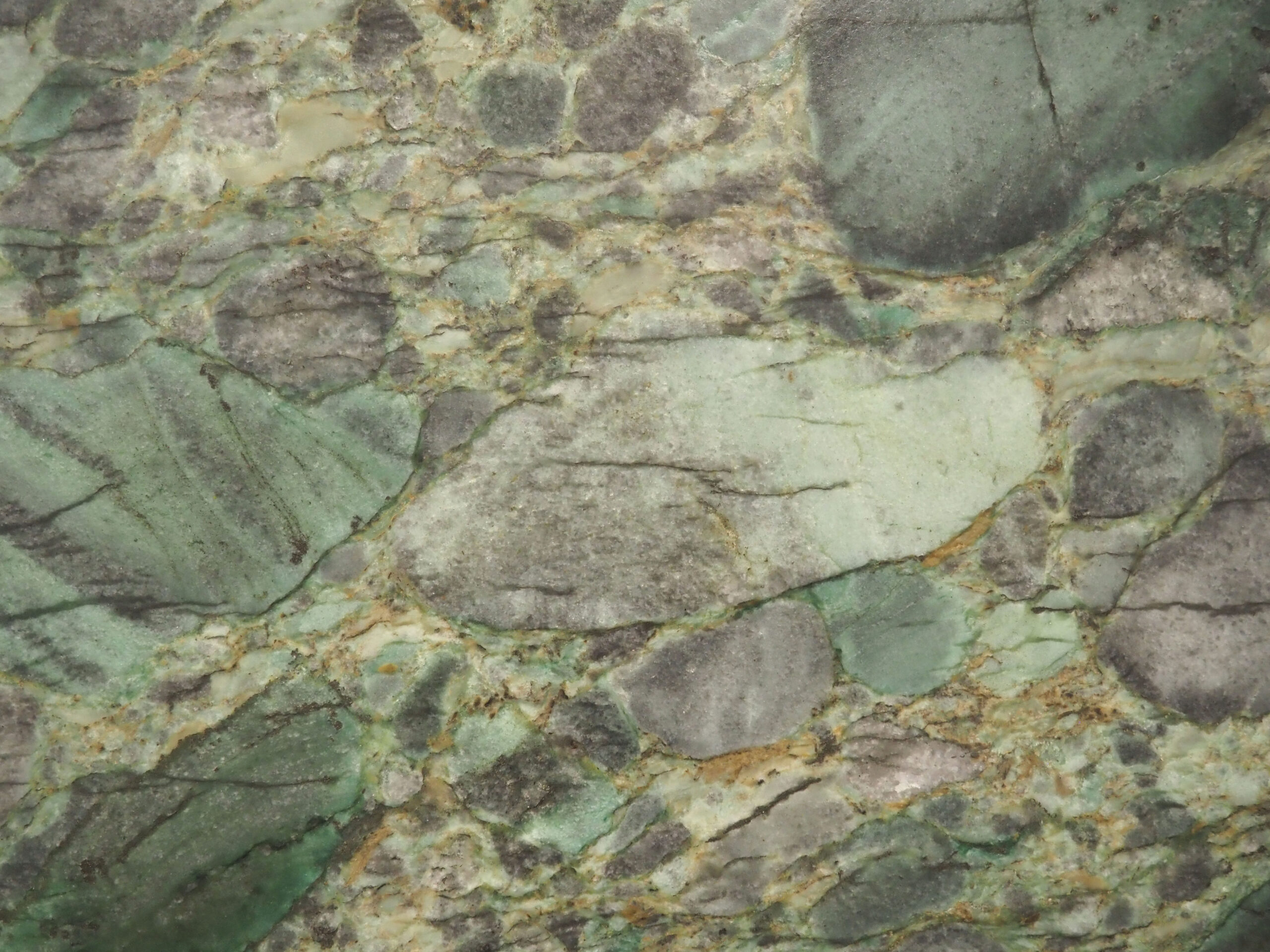
The natural stone version of quartz—one of the less understood, and most expensive countertop options—is quartzite. Although it is more affordable than marble with a similar unique natural beauty, according to global materials supplier MSI, “Quartzite is a very hard metamorphic rock that originated as sandstone. Through a process of heating and pressurization, sandstone is transformed into quartzite, an extremely strong and durable natural stone.” When heated, individual quartz pieces recrystallize, giving it a beautiful and decorative sparkling pattern.
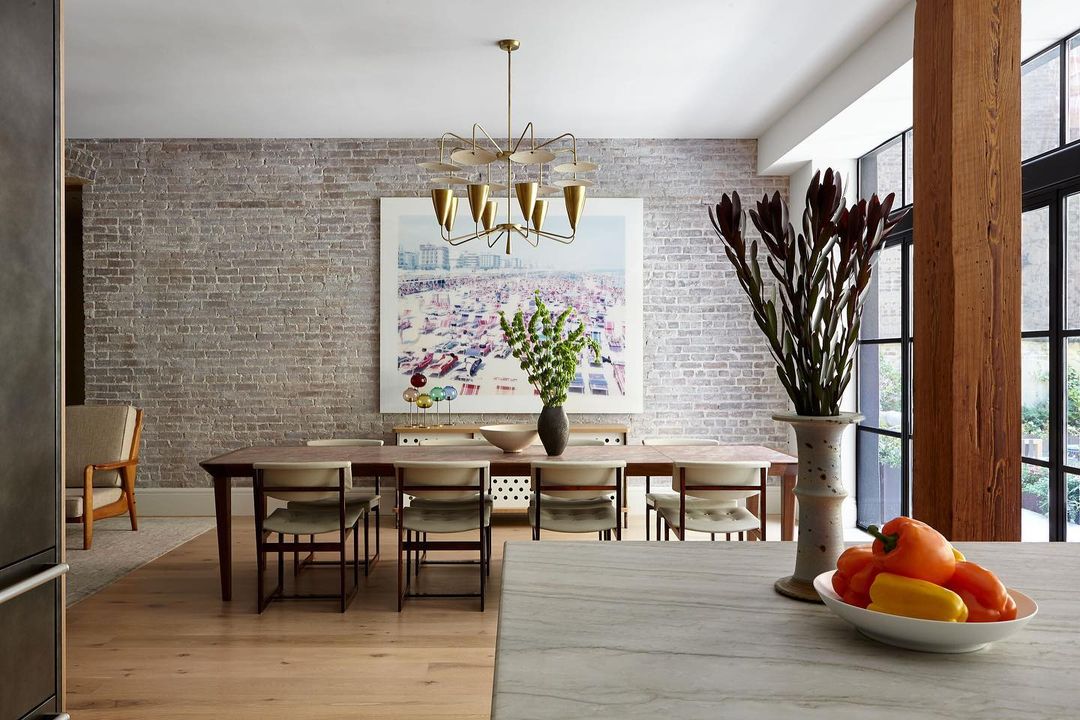
“Quartzite is ideal for any countertop surface due to its strength and long-lasting composition. Consider quartzite countertops for strength, beauty, and overall durability,” say the experts at MSI. That said, like any natural stone, you’ll pay a premium for quartzite. And because it’s a slightly “softer” material, it is prone to scratches from knives and other objects. Also because it is more porous, it is more prone to holding bacteria and to staining, and must be cleaned properly and regularly.
Granite Countertops
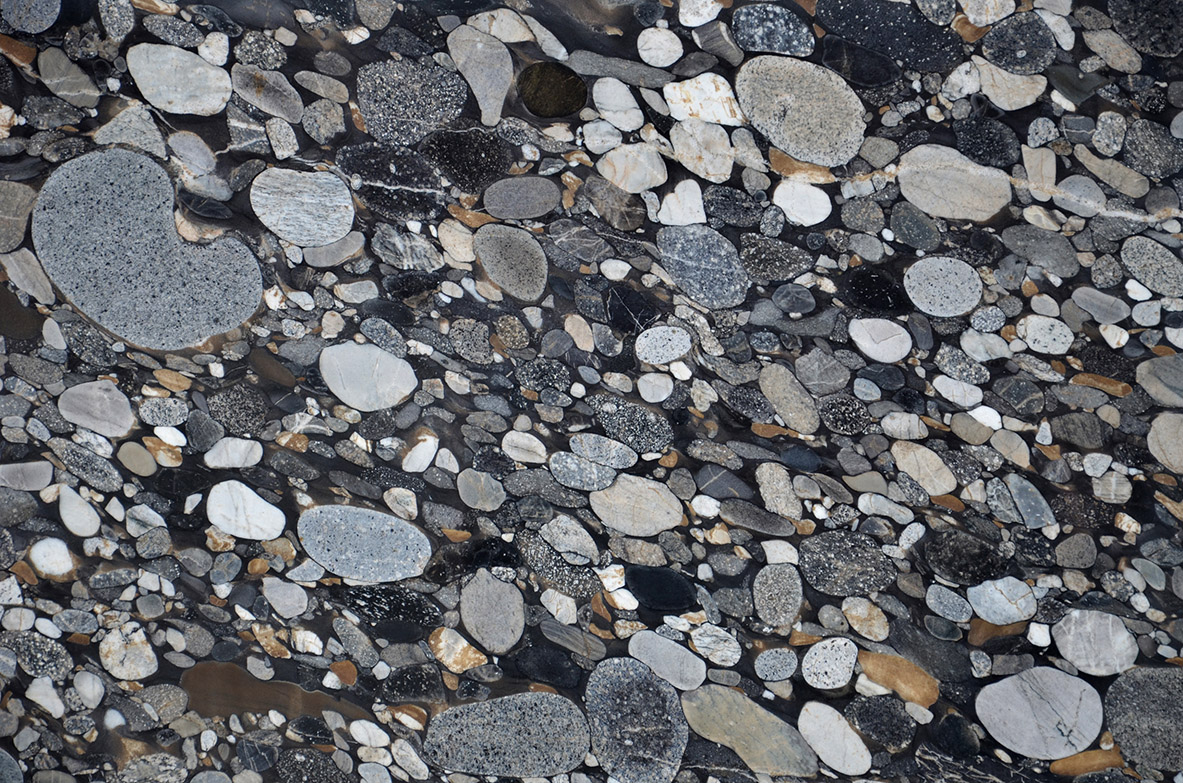
Granite countertops are more porous than quartz, but similarly priced, although with a wider range of affordability—and polished granite remains one of the most popular options for all countertops. Price varies by grade: entry-level or “builder grade,” mid-grade, and high-grade, with higher grades characterized by more unique patterns and sometimes greater thickness. And of course, granite is considered one of the most durable, long-lasting, and low-maintenance countertops out there.
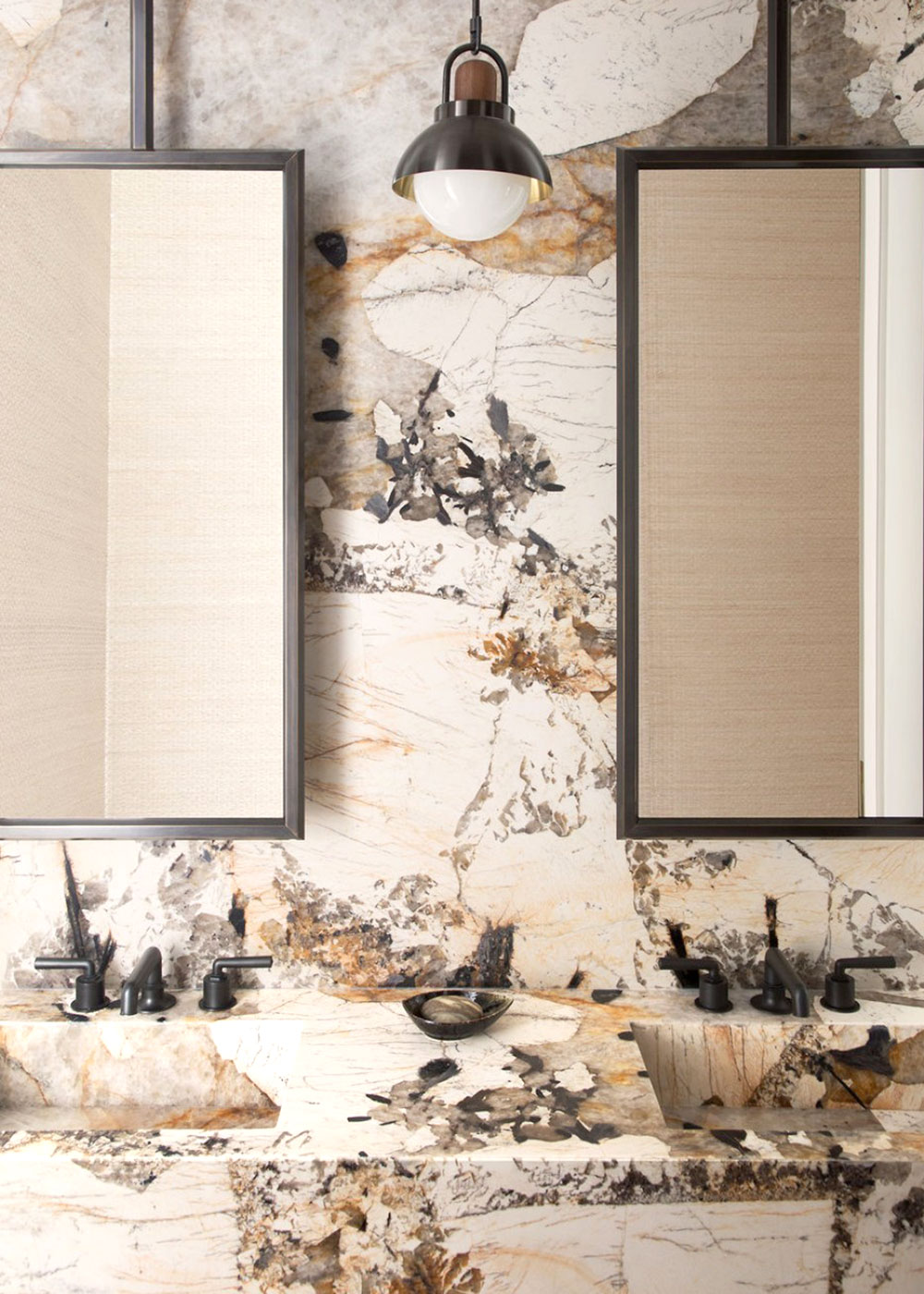
Just make sure it is professionally installed, and be aware that there may be seams, which also must be properly sealed as part of the installation to avoid long-term problems.
Marble Countertops
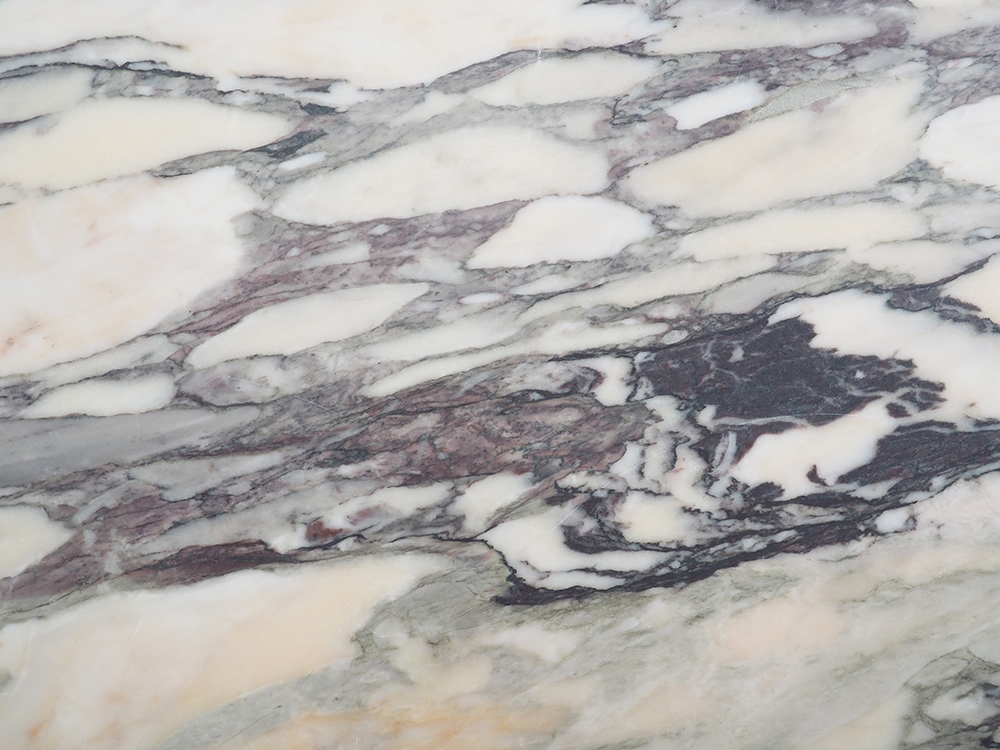
Another coveted natural stone for use in countertops, marble is said to be unmatched in terms of variety, beauty, and quality. Intense variations are a result of its sourcing location, impurities in the rock, and naturally occurring unique veining, patterns, and colors that range from black and white, to pink and green. Adding marble countertops to a home creates instant mystique and value. The rich, venous, durable surfaces are ideal for cooking, as the material remains naturally cool.
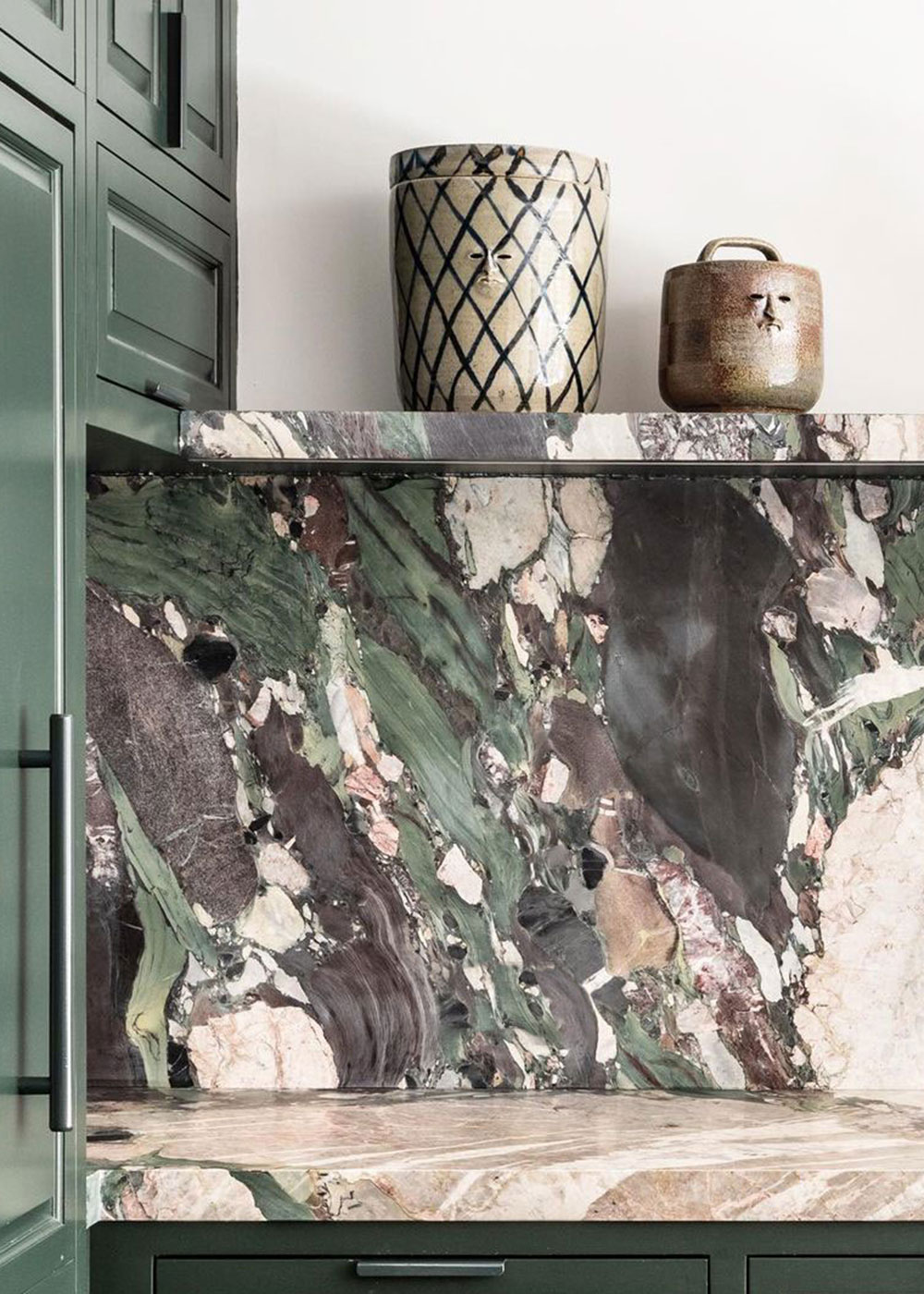
But like other natural surfaces, it has a porous nature and is not impervious to scratching and staining, and will show age, wear, and tear. So before you invest, be sure that you are okay with the naturally aged look. Cost, of course, is a potential drawback; and marble countertops must be properly installed and cared for to achieve the decades of use that they promise and deserve.
When you’ve decided on what type of stone will work for your lifestyle and budget, we recommend heading to a local countertop source to see what’s available. “Clients are getting more adventurous with colors,” says Szymacha. “Yes, all the classic white Apuan Alps marbles are still in demand, along with white marble from Vermont or Colorado, and this will never change, but there is definitely a lot of interest in colorful quartzites and wildly veined marbles.”
Countertops are typically sold in large slabs, which are then cut to size and installed by the fabricator. The size of slabs can vary by stone type, so pricing can get a bit confusing. Give yourself time to wrap your head around the nuances.
Viewing these incredibly beautiful pieces in person can be fun and inspiring. The texture, veining, and coloring of each slab are hard to capture in photographs. Let your inner design voice guide you and trust that the perfect stone—all-natural, or enhanced—will speak to you.
~ From the pages of NEST…We shared this story with you in the Summer 2023 issue of NEST Magazine. To subscribe to NEST Magazine, click here.
